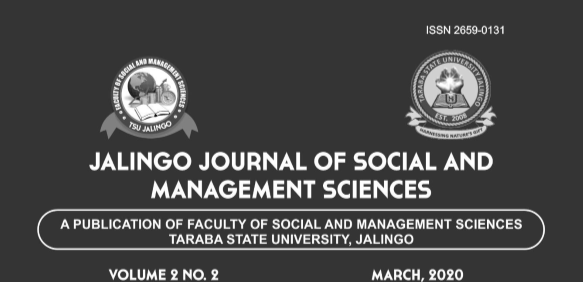Impact of Financial Sector Reforms on the Performance of Deposit Money Banks in Nigeria
Keywords:
Deposit Money Banks, Impact, Return on Assets, Financial Sector Reforms, Return on EquityAbstract
The study assessed the impact of financial sector reforms on the performance of Deposit Money Banks (DMBs) in Nigeria. The specific objectives were to determine the impact of financial sector reforms on Return on Assets (RoA) and Return on Equity (RoE) of the Deposit Money Banks (DMBs). Secondary data were employed, spanning a period of thirty years (i.e. 19862016). The RoA and RoE were used as proxies for DMBs performance while bank credits, bank deposits, real interest rates, and exchange rates were used as proxies for financial sector reforms. A multiple regression analysis was used, while the specified models were estimated using Ordinary Least Square (OLS) technique. The results obtained showed that, though the effect of financial sector reforms on bank performance in Nigeria for the period of study has been significant (especially as measured by the proxies of Return on Assets and Return on Equity), it is not efficient enough to transform the nation’s economy to the desired level. Hence, the study recommended that more and proper recognition be given to the nation’s Deposit Money Banks that will improve banks liquidity and stability which will in no doubt go a long way in boosting shareholder’s and investors’ confidence in the financial sector; and this will further improve the efficiency of the banking sector. The study also suggested a stable macroeconomic environment as a precondition for the efficiency of the financial sector which is essential in ensuring that government fiscal policy is assigned to complement monetary policies to help restore domestic and international confidence in the Nigerian banking system.

Downloads
Published
Issue
Section
License
Copyright (c) 2023 JALINGO JOURNAL OF SOCIAL AND MANAGEMENT SCIENCES

This work is licensed under a Creative Commons Attribution-NonCommercial 4.0 International License.
